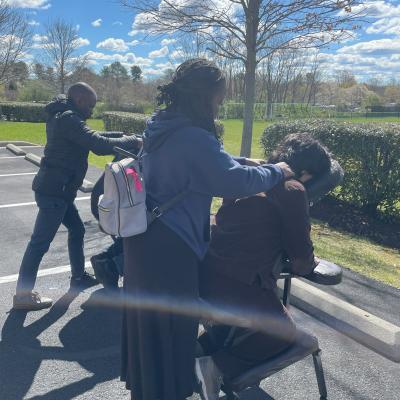Disruption in Circadian Rhythm Increases Probability of Cancer
Study Summary
This study found that exposure to chronic circadian disruption increased tumor burden in a mouse model of KRAS-driven lung cancer. Molecular characterization of tumors and tumor-bearing lung tissues revealed that chronic circadian disruption enhanced the expression of heat shock factor 1 (HSF1) target genes. Consistently, exposure to chronic circadian disruption disrupted the highly rhythmic nuclear trafficking of HSF1 in the lung, resulting in an enhanced accumulation of HSF1 in the nucleus. These findings implicate HSF1 as a molecular link between circadian disruption and enhanced tumorigenesis.
Study Citation
Pariollaud, M., Ibrahim, L. H., Irizarry, E., Mello, R. M., Chan, A. B., Altman, B. J., Shaw, R. J., Bollong, M. J., Wiseman, R. L., Lamia, K. A. (2022). Circadian disruption enhances HSF1 signaling and tumorigenesis in Kras-driven lung cancer. Science Advances, 8(39), DOI: 10.1126/sciadv.abo1123








